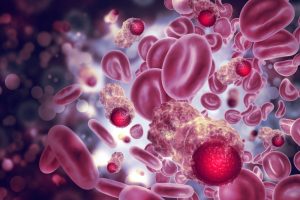When it comes to female health problems, you might find it hard to find a doctor that you feel comfortable speaking to. You might also have some burning questions but feel shy to ask. We spoke to Dr Genevieve Quek, General Practitioner, to answer some of the most common questions that women have about vaginal health. so read on to find out more.
PSA: Medical Channel Asia (MCA) is now on Telegram! Join us here https://t.me/MedicalChannelAsia for daily reads and the latest updates at your fingertips!
Visiting Your Gynaecologist
Before visiting a gynaecologist, you might wonder if you need to shave before your gynae appointment. The answer is that it is entirely up to you. Shaving or not does not affect the physical examination in any way. You can choose based on what you feel most comfortable with.
Vaginitis
Most women would have at least one episode of vaginitis in their lifetime. Vaginitis involves infection or inflammation of the vagina leading to uncomfortable symptoms like itch, pain or vaginal discharge. It is the most common gynaecological problem encountered in a general gynaecologist’s clinic.
The most common causes of vaginitis are yeast infection and bacterial vaginosis. These are very common conditions that women experience. They are not dangerous and can be easily treated. Whenever you experience any of these symptoms, do get yourself checked out as soon as you can. It is not advisable to delay visiting your doctor or try to treat the symptoms by yourself because these might worsen your condition.
Yeast Infection
What causes yeast infection and how to treat it?
Some might think that oral contraceptives are associated with yeast infection. However, this is a myth. There is no correlation between birth control and yeast infection. Yeast infection is due to the overgrowth of yeast in your body. There are a few treatment methods for yeast infection. Your doctor may recommend oral medications to eat, vaginal pessaries to insert, or topical medications to apply, or even a combination of the options.
How can you prevent recurrent yeast infections?
There are many methods of prevention. Firstly, you can consider taking probiotics. Secondly, maintain good hygiene by showering immediately after exercise, vigorous activities, or if you are sweaty. If you still experience recurrent episodes of yeast infection despite the above methods, there are oral medications that you can take regularly for prevention.
Can you have sexual activity if you have a yeast infection?
It is advisable that if you have infections of any kind, to treat the infection first. Once symptoms are better, sexual activity can then resume. Although yeast infection is not classified as a sexually transmitted disease according to CDC (Centers for Disease Control and Prevention), yeast infection can be transmitted to men. While it is not common, it is not rare, either. The risk of infection is low. About 15% of men get an itchy rash on the penis if they have unprotected sex with a woman who has a yeast infection.
Bacterial vaginosis
What causes bacterial vaginosis?
Bacterial vaginosis is a bacterial infection. It happens due to an overgrowth of anaerobic bacteria. Most people get it from having multiple sexual partners. Bacterial vaginosis is considered a sexually transmitted disease (STD) by CDC. Men generally do not have symptoms from bacterial vaginosis but some females might still prefer to have their male partners treated, due to the risk of transmission.
How to treat bacterial vaginosis?
Oral medications or pessaries can be used to treat bacterial vaginosis. However, oral medications are preferred over pessaries, because there is less irritation to the skin. For oral medication, the doctor would also know exactly how much of the medication is being absorbed. Boric acid pessaries could be used but are they not found in Singapore.
Other Common Sexually Transmitted Diseases (STD)
Apart from bacterial vaginosis, chlamydia, gonorrhoea, and herpes are also considered STDs.
What is the difference between the different types of STD?
If you are infected with bacterial vaginosis, you tend to have discharge with a fishy odour. There is not much irritation to the urinary tract. Sometimes, there might be urinary tract symptoms like pain on urination, but it is not often.
People with chlamydia or gonorrhoea would have symptoms like yellow-greenish discharge and irritation to the urinary tract. When they pass urine, they may feel pain.
In comparison, for herpes infection, there tend to be painful blisters, which is a tell-tale sign for herpes.
What is the difference between yeast infection and STD?
Symptoms tend to be more severe for sexually transmitted diseases like chlamydia, gonorrhoea or herpes. If you have a yeast infection, you are likely to experience itch with clumpy discharge. There is not much pain or urinary tract symptoms.
Conclusion
If you experience symptoms of vaginitis discussed above, do remember to visit your gynaecologist or doctor as soon as you can. Do not feel shy or try to treat it by yourself. With timely and appropriate treatment by a professional, these vaginal conditions can be well managed and you would get better.
–
Check out more from Dr Genevieve’s Women’s Health Chats, on contraception use and menstruation!














